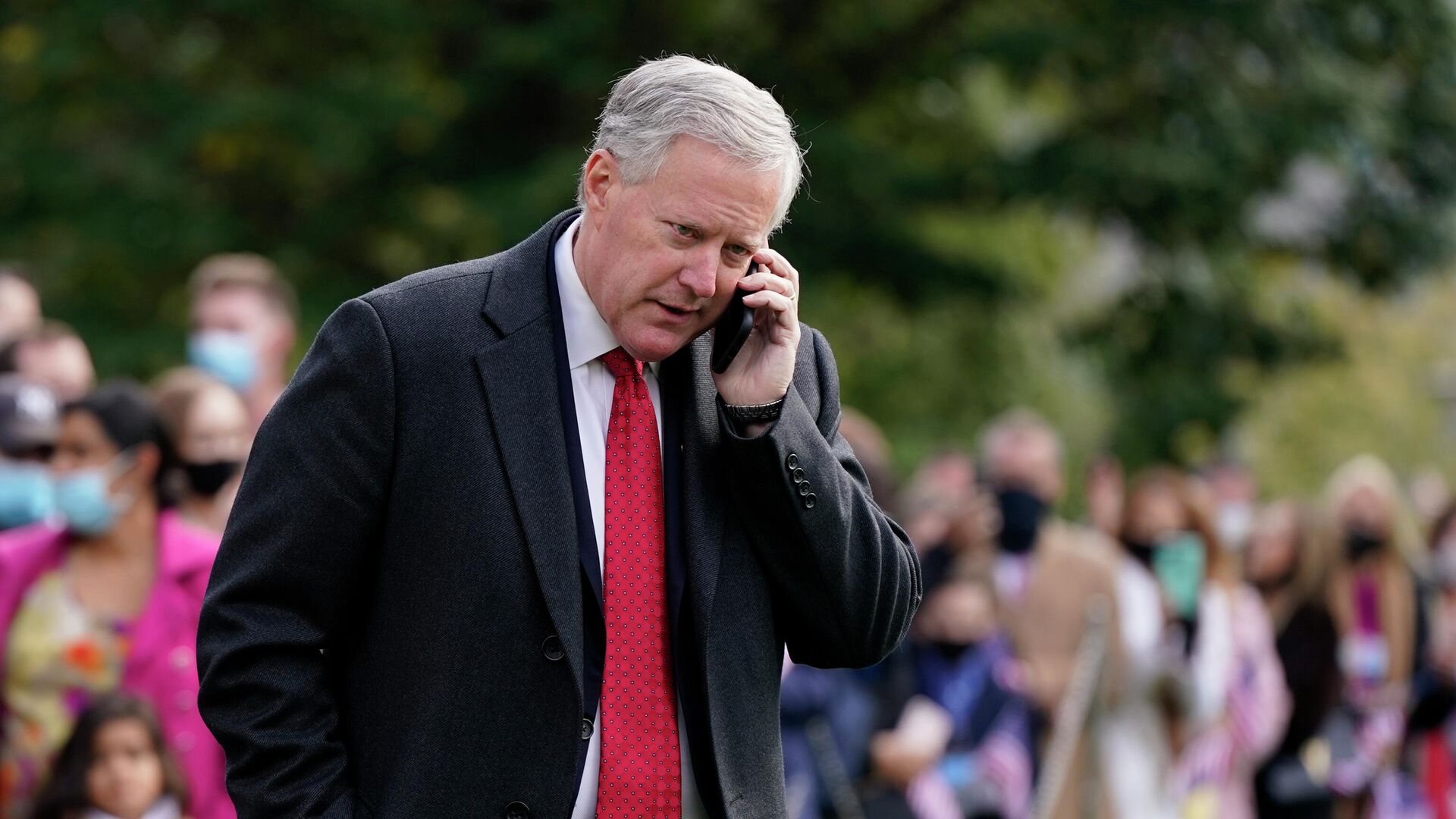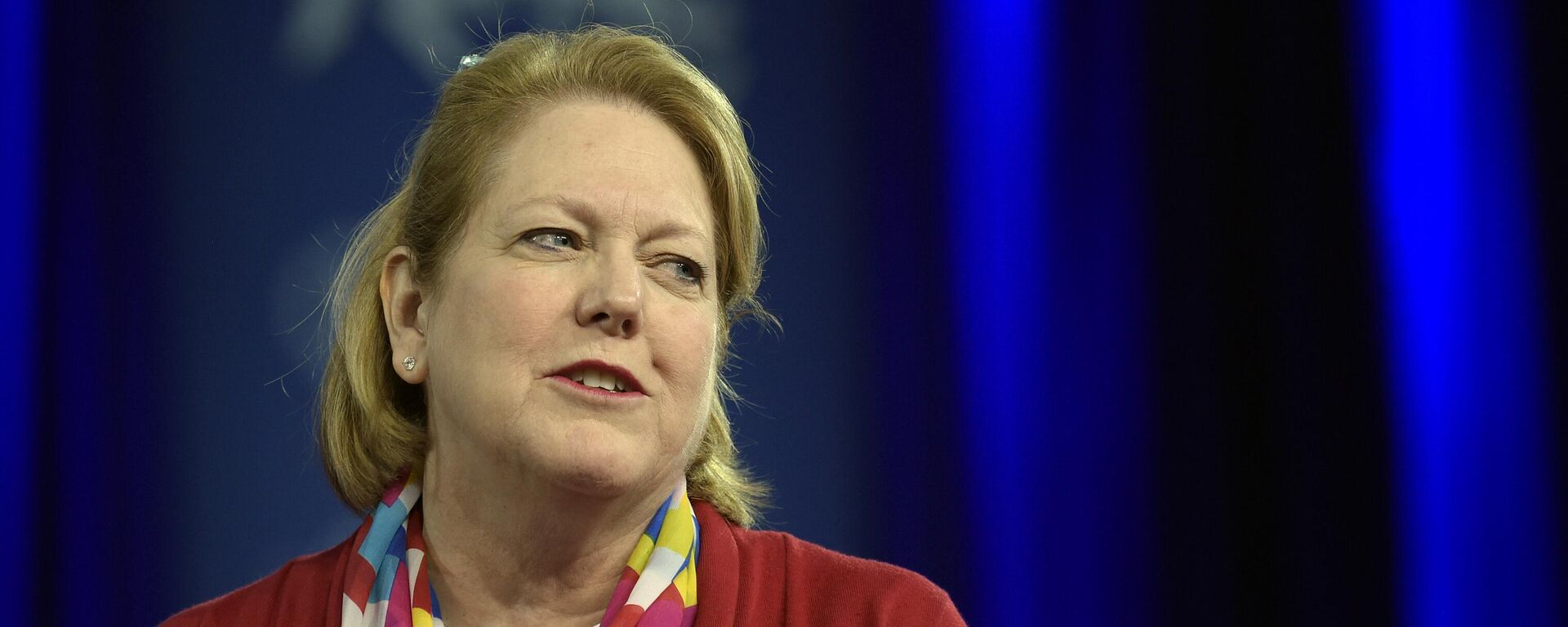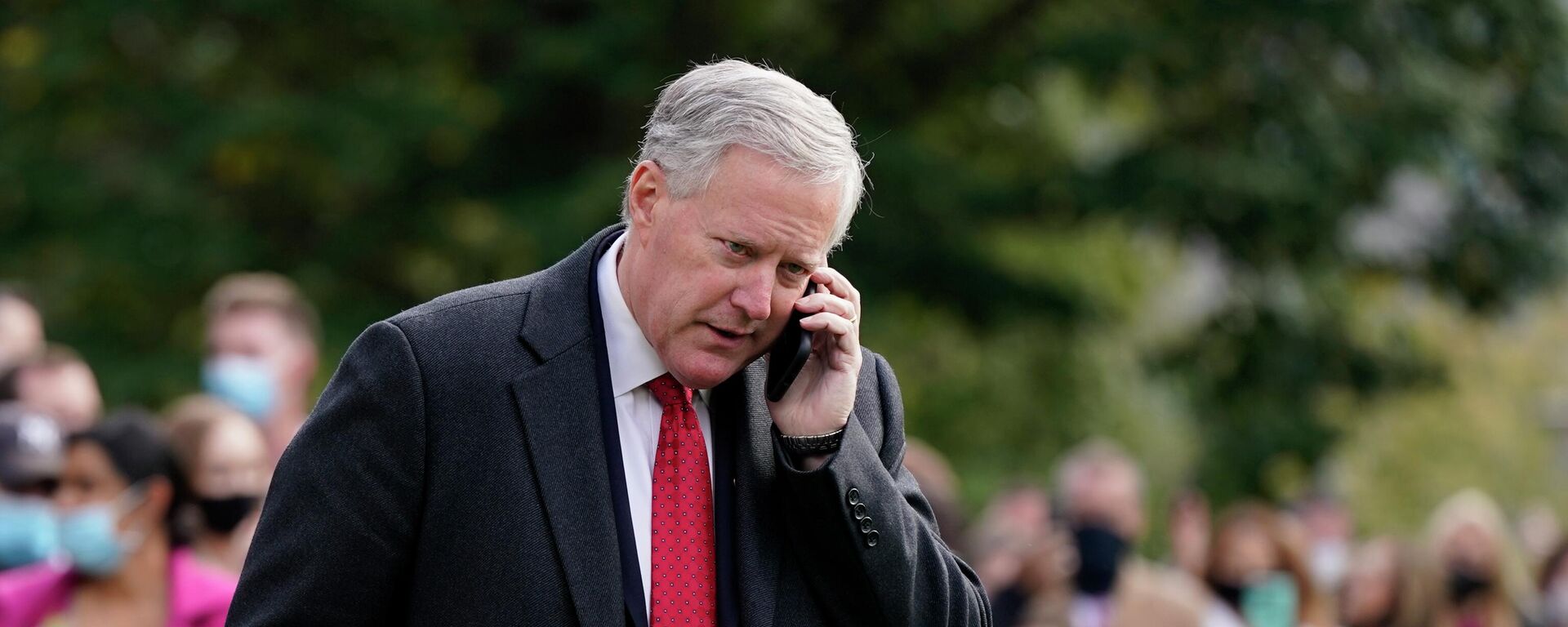https://sputnikglobe.com/20221027/south-carolina-court-orders-mark-meadows-to-testify-in-election-meddling-case-1102746275.html
South Carolina Court Orders Mark Meadows to Testify in Election Meddling Case
South Carolina Court Orders Mark Meadows to Testify in Election Meddling Case
Sputnik International
Investigators in Georgia are looking into possible election interference in the state during the 2020 presidential election by former President Trump and his... 27.10.2022, Sputnik International
2022-10-27T02:39+0000
2022-10-27T02:39+0000
2022-10-27T02:39+0000
americas
us
mark meadows
election interference
south carolina
georgia
https://cdn1.img.sputnikglobe.com/img/07e6/04/17/1094999985_0:0:3073:1728_1920x0_80_0_0_0e426ddb5614ed3813db3b193179a026.jpg
Former White House Chief of Staff Mark Meadows was ordered to travel to Atlanta, Georgia, and testify in front of a special grand jury looking into election interference in the state during the 2020 presidential election.The order came down on Wednesday and Meadows’ lawyer, James Bannister, said they plan to appeal the decision.Bannister is using a legal strategy that has worked for other witnesses from Texas that were ordered to appear in front of the special grand jury. They argued that the Georgia special grand jury is not a legitimate criminal grand jury because it lacks indictment authority and therefore cannot compel witnesses from other states to appear. Bannister is making the same argument for Meadows in South Carolina.The case, being held in Fulton County, Georgia, is looking into allegations of election meddling by former President Donald Trump and his allies. Fani T. Willis, the district attorney of Fulton County, said that she expects other states to help with the investigation.Under Georgia law, a special grand jury can sit for longer periods than a normal grand jury and has the power to subpoena targets of the investigation. However, they cannot issue criminal indictments themselves and instead make recommendations for a regular grand jury to issue.The Texas Court of Criminal Appeals ruled that Texans did not have to comply, but the argument did not hold up in front of South Carolina judge Edward W. Miller, who noted that the judge overseeing the case in Georgia agreed that it was criminal in nature.According to communications Meadows handed over to the House Select Committee investigating the January 6 attack on the Capitol, Meadows repeatedly requested that the Department of Justice investigate former President Trump’s unfounded conspiracies of voter fraud in the 2020 presidential election. He was also in “constant contact” with Trump in the weeks after the election and, by his admission, took part in a meeting between Trump, members of Congress, and other officials to discuss allegations of voter fraud.The next day, Meadows traveled to Georgia and attempted to watch a vote audit going on in the state. Meadows was turned away because the audit was not open to the public. Prosecutors allege that he set up the phone call between Trump and Georgia Secretary of State Brad Raffensperger in which Trump can be heard asking Raffensperger to “find” the 11,780 votes Trump needed to win the state.If Meadows wins his appeal, it could affect other witnesses being called in the Fulton County case, including Michael Flynn, Newt Gingrich, and possibly Trump himself.Dozens of witnesses from out of state have already complied and appeared in front of the Georgia special grand jury. When a state calls a witness who resides out of state, a court hearing is held in the witness’ home state to determine if they are forced to comply. Trump-allied witnesses have been using that hearing as a battleground to fight subpoenas.Already, lawyers Jenna Ellis and John Eastman have lost their cases in Colorado and New Mexico respectively. As did Trump’s personal lawyer Rudolph Giuliani, who claimed he was too sick to fly to Atlanta.However, the argument has been more successful in Texas, where the Court of Criminal Appeals ruled that Jacki L. Pick did not need to appear. That resulted in two other Texans, Sidney Powell and Phil Waldron, skipping their scheduled appearances.Meanwhile, South Carolina Senator Lindsey Graham, who has also been called to appear, has been arguing that he should not be compelled because of the Speech or Debate Clause of the Constitution, which shields lawmakers for actions they take while acting legislatively.Bannister has also filed a federal lawsuit arguing that Meadows should not be compelled to testify in front of the January 6 committee because of executive privilege, which shields the executive branch from being forced to reveal some information to the other branches of government. Bannister says that the Georgia subpoena should not be decided until the federal lawsuit is settled.
https://sputnikglobe.com/20220325/ginni-thomas-texted-mark-meadows-about-efforts-to-overturn-2020-election-report-claims-1094168876.html
https://sputnikglobe.com/20220423/mark-meadows-was-warned-of-possible-violence-ahead-of-jan-6-ex-official-tells-panel--1095000012.html
americas
south carolina
georgia
Sputnik International
feedback@sputniknews.com
+74956456601
MIA „Rossiya Segodnya“
2022
News
en_EN
Sputnik International
feedback@sputniknews.com
+74956456601
MIA „Rossiya Segodnya“
Sputnik International
feedback@sputniknews.com
+74956456601
MIA „Rossiya Segodnya“
us, mark meadows, election interference, south carolina, georgia
us, mark meadows, election interference, south carolina, georgia
South Carolina Court Orders Mark Meadows to Testify in Election Meddling Case
Investigators in Georgia are looking into possible election interference in the state during the 2020 presidential election by former President Trump and his allies. Mark Meadows was the chief of staff for the Trump administration and one of his most ardent supporters.
Former White House Chief of Staff Mark Meadows
was ordered to travel to Atlanta, Georgia, and testify in front of a special grand jury looking into election interference in the state during the 2020 presidential election.
The order came down on Wednesday and Meadows’ lawyer, James Bannister, said they plan to appeal the decision.
Bannister is using a legal strategy that has worked for other witnesses from Texas that were ordered to appear in front of the special grand jury. They argued that the Georgia special grand jury is not a legitimate criminal grand jury because it lacks indictment authority and therefore cannot compel witnesses from other states to appear. Bannister is making the same argument for Meadows in South Carolina.
The case, being held in Fulton County, Georgia, is looking into allegations of election meddling by former President Donald Trump and his allies. Fani T. Willis, the district attorney of Fulton County, said that she expects other states to help with the investigation.
“We expect every state to abide by the constitutional requirement to ensure that full faith and credit is given by them to the laws and proceedings of other states,” Willis said in a statement last month. “That requirement includes abiding by the interstate compact to produce witnesses for other states’ judicial proceedings.”
Under Georgia law, a special grand jury can sit for longer periods than a normal grand jury and has the power to subpoena targets of the investigation. However, they cannot issue criminal indictments themselves and instead make recommendations for a regular grand jury to issue.
The Texas Court of Criminal Appeals ruled that Texans did not have to comply, but the argument did not hold up in front of South Carolina judge Edward W. Miller, who noted that the judge overseeing the case in Georgia agreed that it was criminal in nature.
“Do I give full faith and credit to our sister state’s rulings?” Miller said.
According to communications Meadows handed over to the House Select Committee investigating the January 6 attack on the Capitol, Meadows repeatedly requested that the Department of Justice investigate former President Trump’s unfounded conspiracies of voter fraud in the 2020 presidential election. He was also in “constant contact” with Trump in the weeks after the election and, by his admission, took part in a meeting between Trump, members of Congress, and other officials to discuss allegations of voter fraud.
The next day, Meadows traveled to Georgia and attempted to watch a vote audit going on in the state. Meadows was turned away because the audit was not open to the public. Prosecutors allege that he set up the phone call between Trump and Georgia Secretary of State Brad Raffensperger in which Trump can be heard asking Raffensperger to “find” the 11,780 votes Trump needed to win the state.
If Meadows wins his appeal, it could affect other witnesses being called in the Fulton County case, including Michael Flynn, Newt Gingrich, and possibly Trump himself.
Dozens of witnesses from out of state have already complied and appeared in front of the Georgia special grand jury. When a state calls a witness who resides out of state, a court hearing is held in the witness’ home state to determine if they are forced to comply. Trump-allied witnesses have been using that hearing as a battleground to fight subpoenas.
Already, lawyers Jenna Ellis and John Eastman have lost their cases in Colorado and New Mexico respectively. As did Trump’s personal lawyer Rudolph Giuliani, who claimed he was too sick to fly to Atlanta.
However, the argument has been more successful in Texas, where the Court of Criminal Appeals ruled that Jacki L. Pick did not need to appear. That resulted in two other Texans, Sidney Powell and Phil Waldron, skipping their scheduled appearances.
Meanwhile, South Carolina Senator Lindsey Graham, who
has also been called to appear, has been arguing that he should not be compelled because of the Speech or Debate Clause of the Constitution, which shields lawmakers for actions they take while acting legislatively.
Bannister has also filed a federal lawsuit arguing that Meadows should not be compelled to testify in front of the January 6 committee because of executive privilege, which shields the executive branch from being forced to reveal some information to the other branches of government. Bannister says that the Georgia subpoena should not be decided until the federal lawsuit is settled.




